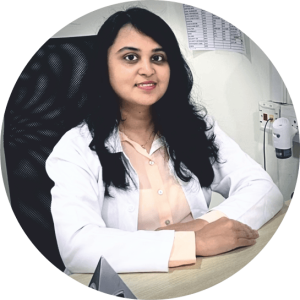Learn about the causes, symptoms, diagnosis, treatment options (surgical and non-surgical), common related issues, and preventive care for Cleft lip and palate surgery.
"Cleft Lip and Palate Surgery"
Dr. Dimple Sethia, the dentist and Oral and Maxillofacial Surgeon practising in Girinagar, Bangalore, specialises in diagnosing and treating Cleft lip and palate surgery
Cleft lip and palate surgery are specialised surgical procedures aimed at correcting congenital deformities where a baby is born with an opening or split in the upper lip (cleft lip) and/or the roof of the mouth (cleft palate). These conditions occur during fetal development when the facial structures do not fuse properly.
A. Cleft Lip:
Unilateral: Affecting one side of the lip.
- Bilateral: Affecting both sides of the lip.
- Complete: Extends from the lip up into the nose.
- Incomplete: Only involves part of the lip, not extending into the nose.
B. Cleft Palate:
- Soft palate cleft: Involves only the soft tissue at the back of the mouth.
- Hard palate cleft: Extends into the bony part of the palate.
- Complete cleft: Extends through both soft and hard palate.
- Submucous cleft: Bony defect covered by normal-looking tissue; may cause speech or feeding issues.
C. Combination:
- Cleft lip and palate often occur together, influencing treatment complexity.
Causes and Risk Factors
A. Genetic Factors:
- Family history of clefts.
- Genetic syndromes (e.g., Van der Woude syndrome, Pierre Robin sequence).
B. Environmental Factors:
- Maternal smoking or alcohol consumption during pregnancy.
- Use of certain medications (e.g., anti-epileptics, corticosteroids).
- Poor maternal nutrition, especially folic acid deficiency.
- Maternal infections during pregnancy.
C. Other Factors:
- Advanced maternal age.
- Diabetes or obesity during pregnancy.
- Visible split or opening in the upper lip and/or palate.
- Difficulty feeding (especially in infants, due to inability to create suction).
- Frequent ear infections or hearing problems.
- Speech delays or abnormalities.
- Dental issues such as missing, extra, or misaligned teeth.
- Nasal speech or hypernasality.
- Psychological or social challenges due to appearance or speech issues.
- Folic Acid Supplementation: Pregnant women should take prenatal vitamins with sufficient folic acid (400-800 mcg daily).
- Avoidance of Teratogens: No smoking, alcohol, or harmful medications during pregnancy.
- Genetic Counseling: For families with history of clefts.
- Good Prenatal Care: Regular check-ups, managing maternal health conditions.
- Nutrition: Balanced diet rich in vitamins and minerals during pregnancy.
A. Prenatal Diagnosis:
Ultrasound during pregnancy can sometimes detect cleft lips or palate as early as the second trimester.
B. Postnatal Examination:
- Visual inspection at birth confirms clefts.
- The palate and lip are examined for their extent and type.
- Additional assessments include hearing tests, dental evaluations, and imaging (X-rays, CT scans) for skeletal anomalies.
Treatment Options
A. Surgical Correction:
- Cleft lip repair (cheiloplasty): Usually within 3-6 months.
- Cleft palate repair (palatoplasty): Typically between 9-18 months.
- Additional surgeries may be needed as the child grows (e.g., lip/nose revisions, alveolar bone grafts).
B. Non-surgical Interventions:
- Feeding support: Special bottles or techniques.
- Speech therapy: To address speech and language development.
- Hearing management: Use of hearing aids or tubes for ear infections.
- Dental care: Orthodontics, prosthetics, or dental surgery.
If you are experiencing symptoms related to a cleft lip or palate or suspect you might have one, please don’t hesitate to contact me via WhatsApp or call at 733-805-8850. For expert care, you need a qualified Oral and Maxillofacial Surgeon, not just a general dentist. Dr. Dimple Sethia offers both online consultations and in-person clinical consultations, available at Girinagar, Bangalore.
